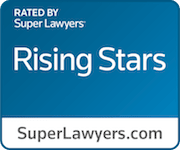Our clients often come in for a consultation with questions related to probate. They have heard that probate is something they should avoid for the sake of their loved ones. They have heard that the probate process in Virginia can be time consuming and expensive.
What is probate?
Probate is the legal procedure/process by which the court supervises the transfer of ownership of the deceased owner’s assets/property following death. If there is a will, it is recorded and the person named in the will to look after decedent’s property (the Executor) is required to prepare and file an inventory of the estate assets, pay off the estate debts and distribute the estate property according to the terms of the will. The executor is responsible for submitting one or more accounting detailing all of the estate’s financial transactions. Often the Executor will need the assistance of an attorney and perhaps an accountant to complete these tasks. The executor must post a bond with the Court and secure a bonding company (surety) to stand behind the bond. If there is no will, the person who looks after the transfers of assets is called the Administrator.
Avoiding probate
There are, however, estate planning techniques and tools that can help you avoid placing this burden on your family members. At the Manassas Law Group, P.C., our attorneys have the experience in probate law and can help you organize your financial affairs so that the probate process will not be necessary. These methods should be tailored to the client’s particular needs and circumstances. Among the methods available are:
- Creating a revocable living trust. A revocable living trust can be created whereby you select a trusted individual to serve as trustee owner of any property that you transfer to the trust. Property held in the Trust is not subject to probate and will transfer to your named beneficiaries upon your death.
- Joint ownership of property. Property such as real estate, bank accounts, investment accounts and retirement accounts can be set up so that this property automatically passes to the surviving owner when the first owner passes away. Property of this type is not subject to probate. Investment accounts of this type are called “transfer on death” (TOD) accounts. If the account is held by a bank it is called a “payable on death” (POD) account. With real estate the deed may establish a joint tenancy with survivor-ship or in the case of a married couple tenants by the entirety with survivor-ship.
- Simplified probate: If your real estate or property is valued below a certain amount, you may be able to avoid probate altogether.
Contact Manassas Law Group for All of Your Estate Planning Questions
At the Manassas Law Group, P.C., our skilled attorneys can help you draft a variety of estate planning documents to avoid the probate process. Call us locally at 703 361-8246 for your APPOINTMENT.
















